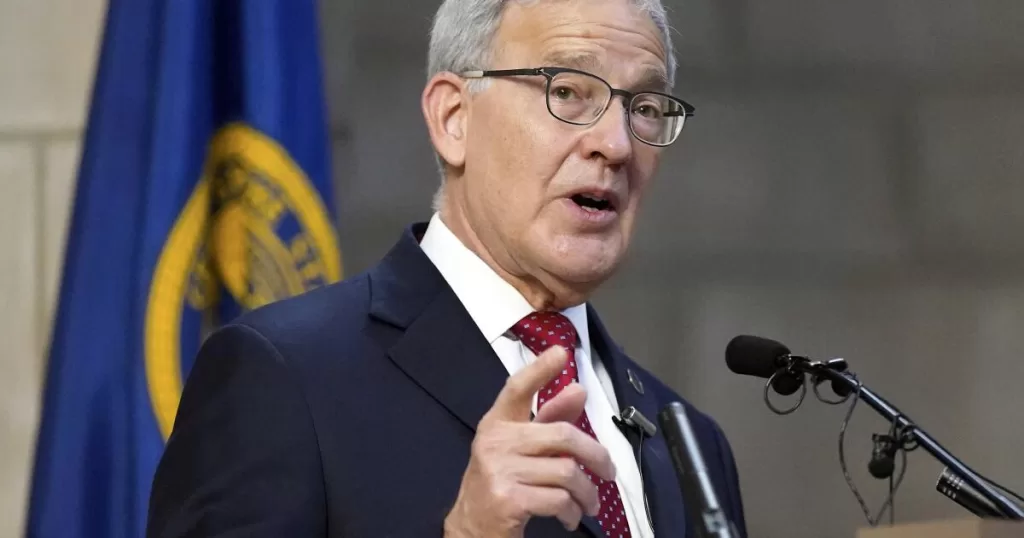Nebraska’s top election official had no authority to strip voting rights from people convicted of a felony, the state Supreme Court ruled Wednesday in a decision that could add hundreds of new voters to the rolls and potentially help tip the balance on Nov. 5.
The order by Republican Secretary of State Bob Evnen could have kept 7,000 or more Nebraskans from voting in the upcoming election, the American Civil Liberties Union has said. Many of them reside in Nebraska’s Omaha-centered 2nd Congressional District, where both the race for president and the makeup of Congress could be in play.
Nebraska overall is heavily Republican but is one of only two states — the other is Maine — that apportions its electoral college votes by congressional district. The Omaha-area district has twice awarded that vote to Democratic presidential candidates — to Barack Obama in 2008 and again to Joe Biden in 2020. In a 2024 presidential race shown by polling to be a dead heat, a single electoral vote could determine who wins.
Given the Omaha district’s history, Democratic presidential nominee Kamala Harris and Democratic groups have spent millions there to secure the precious electoral vote — far more than former President Trump and Republican groups.
The last day to register to vote for the 2024 general election in Nebraska is Oct. 25 and must be done in person. Election day is Nov. 5.
Evnen in July had ordered county election officials to reject the voter registrations of those with felony convictions, citing an opinion issued by state Atty. Gen. Mike Hilgers. That opinion, which Evnen had requested, deemed as unconstitutional a law passed this year by the Legislature immediately restoring the voting rights of people who have completed the terms of their felony sentences.
Hilgers′ opinion said that the law violated the state Constitution’s separation of powers and that only the state Board of Pardons under the control of the executive branch could restore voting rights through pardons.
Pardons are exceedingly rare in Nebraska. Evnen, Hilgers and Gov. Jim Pillen make up the three-member Board of Pardons. All three are Republicans.
The opinion also found unconstitutional a 2005 state law that restored the voting rights of people with felony convictions two years after they complete the terms of their sentences.
The ACLU is representing the advocacy group Civic Nebraska and two Nebraska residents — a Republican and an independent — who would be denied the right to vote under Evnen’s directive. Because Evnen’s move came only weeks ahead of the November election, the ACLU asked to take the lawsuit directly to the Nebraska Supreme Court, and the high court agreed.
Restoring the voting rights of former felons has drawn national attention in recent years. In Florida, lawmakers weakened a 2018 voter-approved constitutional amendment to restore the voting rights of most people convicted of felonies. Following that, an election police unit championed by Republican Gov. Ron DeSantis arrested 20 such people. Several said they were confused by the arrests because they had been allowed to register to vote.
In Tennessee, lawmakers killed a bipartisan bill this year that would have let residents convicted of felonies apply to vote again without also restoring their gun rights.
Dozens of states allow people living with felony convictions to vote, either for those not currently in prison or upon completion of their sentences. Two states, Maine and Vermont, allow everyone, even those in prison, to vote. But despite a recent trend toward restoration of rights, felony disenfranchisement laws prevent around 5.85 million people across the country from voting, according to the ACLU.
Felony disenfranchisement laws date to the Jim Crow era and mainly targeted Black people, according to experts. Black registered voters have an overwhelmingly positive view of Harris, according to a recent poll from the AP-NORC Center for Public Affairs Research.
Beck writes for the Associated Press.
